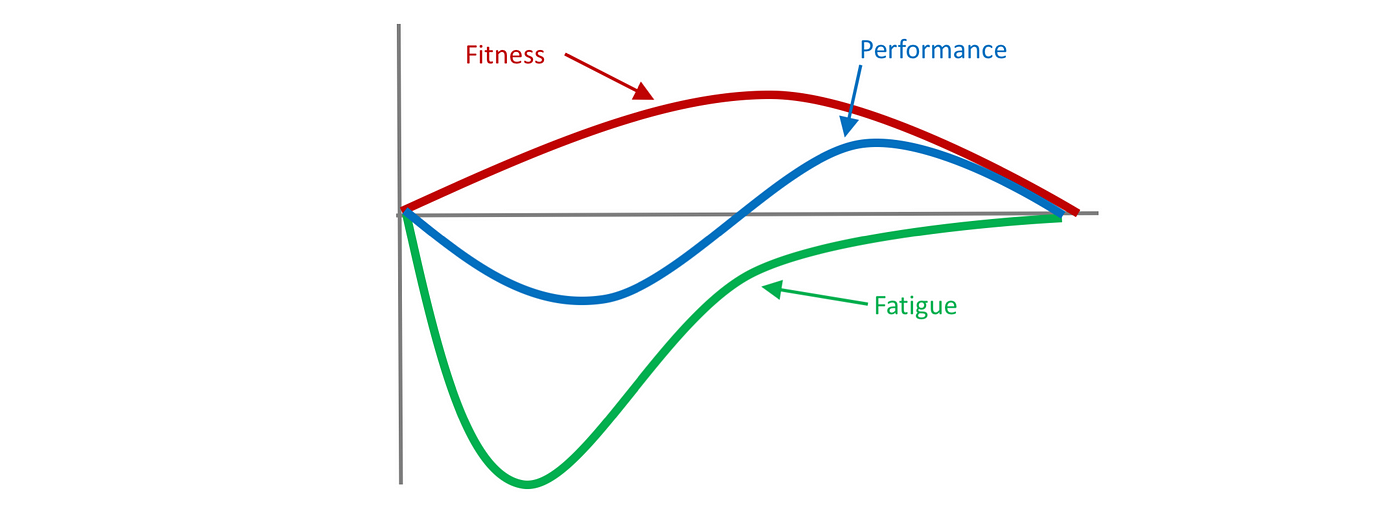I was a big fanboy for Mentzer for a few years. I have two books from him. There are a few issues with his theories. The big one is that the model of training adaptation he uses is severely outdated, even at the time of his HD1 book. The model it uses is the one-factor theory, which was created by a psychiatrist, if I recall correctly, and it basically suggests that you give a stimulus, recover, adapt, and repeat. This suggests a totally linear progression. This is inaccurate, and the actual one we use is a two-factor model that includes the "fitness and fatigue" variables that explain why the more you practice something, the better you get. We know this is true, and we know people are overtrained at the point of their peak performance, in any sport, really.
Two-factor model:

The relevance of this is that he uses the incorrect one-factor model as justification for his pretty hard-core rest periods, like hitting the chest once every 14 days. There's no evidence that suggests it takes this long to recover. He has no proof of this working either, as it was all "phone clients" claiming to make massive gains on that system. I'm not suggesting he's a liar though, as magazines showed him using earlier Heavy Duty methods on himself and clients with great success. Emphasis on "earlier" though as the only actual person I saw document their progress on the "consolidated" routine, got weaker and smaller by doing it.
The other thing is that slow reps make you weaker. The only study comparing the two found that maximal strength (1RM) was way higher for people training at normal rep speeds. The slow reps only made them slightly better at moving a weight slowly. There is also physiology (the size principle) that shows that you can't "trick" the body into thinking a weight is heavier than it is just by moving it slowly. Increasing stimulus is better done by increasing weight or reps. It could be good for people with injuries who are using perfectly greased machines with no sticking points, but that doesn't apply to most of the people following his work.
I do like him though; recovery is where growth occurs, and he's right about that. Genetics are also the prime determinant for your gains. People have gotten big doing every system under the sun. I've come to the conclusion the best routines are just the normal 1x a week split routine or a 2-3x full body routine. The routine should be what you want to do because it really won't make a difference down the road. The workouts being difficult is what matters.

